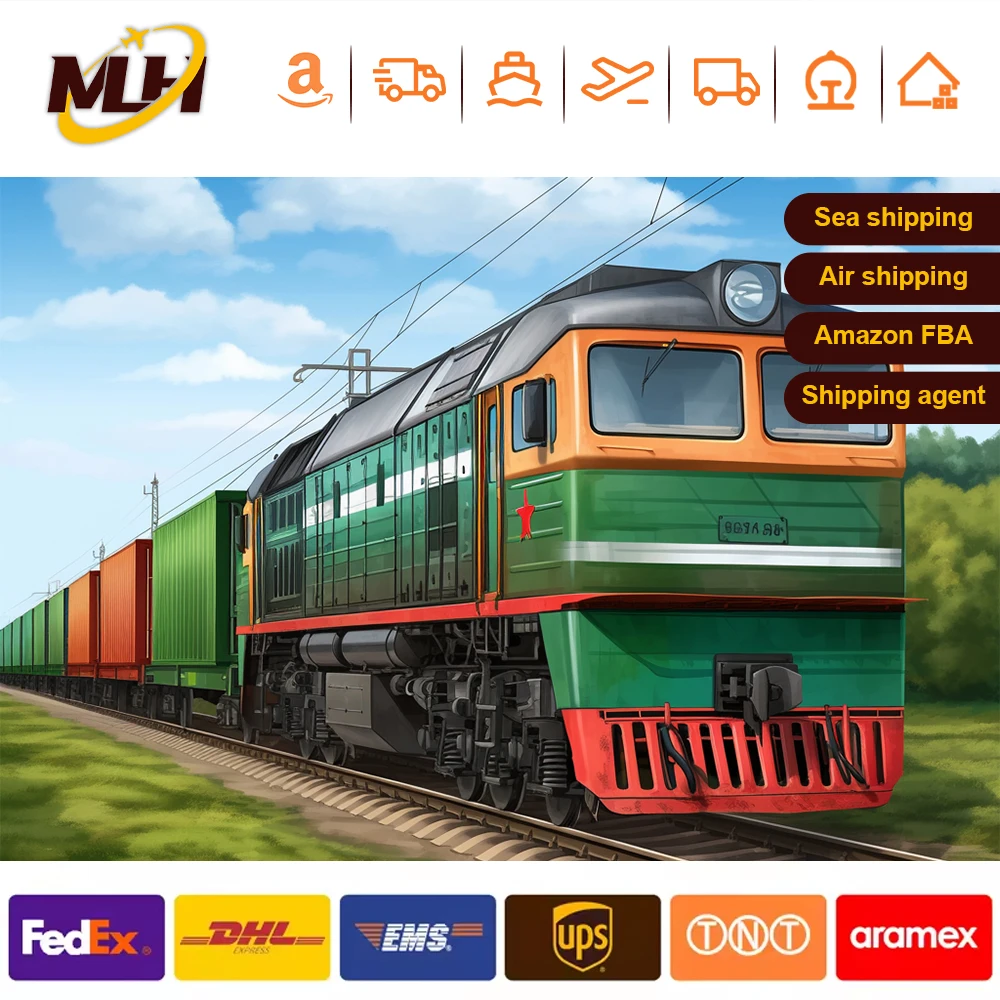Транспортна експедиція є важливим компонентом міжнародного судноплавства та логістики, яка виступає основою транспортування вантажів через глобальні кордони. Вона включає в себе компанії третіх сторін, які управляють переміщенням товарів від місця походження до кінцевого місця призначення, використовуючи кілька видів транспорту, таких як повітряний, морський, автомобільний і залізничний. Ці компанії надають експертну допомогу в навигації по складності міжнародної торгівлі, включаючи забезпечення місця з перевізниками та забезпечення того, щоб всі необхідні документи та митні вимоги були виконані.
Спедитори виступають посередниками між відправниками і перевізниками, відіграючи ключову роль у оптимізації судових процесів. Їх послуги спрощують морський шлях, управляючи логістикою від імені підприємств, забезпечуючи ефективну координацію на кожному кроці. Отримаючи такі завдання, як бронювання вантажного простору, переговори про ціни та забезпечення необхідного страхування, экспедитори полегшують тягар відвантаження власників бізнесу, дозволяючи їм зосередитися на основних операціях. Ця посередницька роль не тільки підвищує ефективність операцій, але і значно зменшує ризики, пов'язані з міжнародною торгівлею.
При виборі експедиторської служби важливо оцінити конкретні потреби вантажу, включаючи розмір, вагу та місце призначення. Різні вантажі мають різні вимоги; наприклад, скороплюшним товарам можуть знадобитися холодильні контейнери, а надмірному вантажу можуть знадобитися спеціальні способи обробки та транспортування. Розуміння характеру вашого вантажу і його подорожі гарантує, що ви виберете експедиторську службу, здатну ефективно задовольняти ці конкретні потреби.
Не менш важливим є перевірка акредитивів потенційних постачальників послуг. Розгляньте такі аспекти, як ліцензування, страхування та досвід експедитора у обробці таких же відправлень, як і ваш. Добре ліцензований і застрахований постачальник послуг не тільки відповідає юридичним стандартам, але також пропонує додаткові рівні безпеки та безпеки для ваших товарів. Крім того, досвідчені експедитори, ймовірно, мають добре налаштовані мережі та досвід в управлінні складною морською логістикою, що є безцінним для забезпечення ефективного і своєчасного транспортування вашого вантажу.
Транспортна експедиція - це життєво важлива логістична послуга, яка забезпечує безперебійний транспорт товарів у всьому світі. Різні види експедиторських послуг відповідають різним логістичним потребам та галузям.
Відомо, що авіаперевезення швидко, тому ідеально підходить для високоцінних товарів або товарів, які потрібно швидко доставляти. Авіаперевезення - це найшвидший шлях, тому вони підходять для скоросплюшних товарів, термінових відправлень і цінних вантажів. Незважаючи на те, що вони дорожчі, ніж інші послуги, компанії часто вибирають авіаперевезення через його надійність і швидкість, особливо коли час є вирішальним.
Ця послуга є найбільшим способом експедиції в усьому світі і найкраще використовується для розгрузки грузу. Морський вантаж часто є більш економічно ефективним у порівнянні з повітряним вантажем, що робить його ідеальним для великих відправлень, де часові обмеження менш обмежені. Він може перевозити або повну контейнерну навантаження (FCL) або менше контейнерної навантаження (LCL), що дозволяє підприємствам перевозити значні обсяги за нижчою вартістю на одиницю.
В основному використовується для внутрішнього та регіонального транспорту, автомобільний вантажний транспорт пропонує гнучкість для широкого діапазону розмірів вантажу. Ця послуга зазвичай використовується для переміщення товарів всередині однієї країни або на одному континенті, пропонуючи доставку від дверей до дверей. Вантажівки та фургони є основним засобом автомобільного вантажного транспорту, що робить їх ефективним рішенням для перевезення на короткі і середні відстані.
Ці послуги поєднують кілька видів транспорту, таких як вантажівки, поїзди, кораблі та літаки, щоб оптимізувати логістику та максимально ефективно витрачати кошти. Інтермодальна експедиція дозволяє компаніям використовувати переваги кожного виду транспорту, що призводить до більш ефективних і гнучких логістичних рішень, які можуть управляти складними вимогами ланцюжка постачання.
Кожен вид послуг має свої переваги і відповідає конкретним потребам, що дозволяє підприємствам вибирати найбільш відповідний метод для потреб їхніх вантажів.
Послуги експедиції забезпечують економічну ефективність шляхом оптимізації морських маршрутів та переговорів з конкурентними тарифами з перевізниками. Використовуючи свої широкі мережі, експедитори можуть визначити найбільш ефективні маршрути і консолідувати перевезення для зниження витрат. Вони ведуть переговори з різними перевізниками, щоб отримати найкращі ціни, що дозволяє підприємствам заощадити транспортні витрати, зберігаючи своєчасні доставки.
Крім того, експедитори приносять досвід у митних правилах, забезпечуючи безперервний і відповідності транскордонного транспорту. Обробка митної документації - складний процес, що включає різні форми, такі як комерційні рахунки-фактури, коносаменти та переліки упаковки. Спедитори допомагають підприємствам перейти через ці вимоги, забезпечуючи точність та повноту всіх документів, щоб уникнути затримок і штрафів. Наприклад, вони можуть допомогти правильно класифікувати товари для митного оформлення, що має вирішальне значення для уникнення дорогоцінних помилок.
Крім того, постачальники логістики керують страховкою та ризиками, захищаючи вантаж протягом усього його подорожі. Вони пропонують страхову страховку, яка захищає від втрати, крадіжки або пошкодження. Наприклад, експедитор може забезпечити страхування вантажу, яке покриває всю вартість товару, що дає бізнесменам спокій. За допомогою страхового обслуговування, експедитори допомагають підприємствам зменшити ризики і захистити свої фінансові інтереси, забезпечуючи надійну та безпечну операцію на нестабільних ринках.
Коли розглядаються надійні експедиторські послуги, такі глобальні гіганти, як DHL і FedEx, виділяються своїм широким доступом і досвідом. Ці компанії пропонують надійні рішення для перевезення повітряних та морських вантажів від дверей до дверей, забезпечуючи ефективну доставку через континенти. Їх широкі мережі гарантують надійну підтримку підприємств, які шукають оптимізовані та своєчасні логістичні рішення.
Для спеціалізованих потреб в перевезенні авіаперевізники, що спеціалізуються на послуг DDP (Delivered Duty Paid), забезпечують безпечний перевезення. Вони керують логістикою від кінця до кінця, виконуючи всі митні формальності і забезпечуючи, щоб ваші вантажі прибули без затримки.

Крім того, експедиторські компанії з бази в Китаї часто включають послуги з перевірки якості для гарантування відповідності міжнародним стандартам. Ці послуги, відомі конкурентними цінами, є безцінними для підприємств, які прагнуть підтримувати високі стандарти якості, мінімізуючи витрати.

Вибір правильної експедиторської служби вимагає ретельної порівняльної оцінки пропозицій на перевезення. Кожна оферта повинна оцінюватися не тільки за ціною, але і за часом транзиту і діапазоном пропонованих варіантів послуг. Розгляд цих факторів гарантує, що ви вирівнюєте свої потреби в доставці з найбільш підходящим сервісом, оптимізуючи як витрати, так і ефективність. Наприклад, пропозиція від експедитора, яка обіцяє швидший час транзиту, може бути дорожчою, але в кінцевому рахунку може заощадити альтернативні витрати, якщо своєчасна доставка призводить до кращої реакції ринку.
Перегляд відгуків клієнтів і оцінки також є важливим кроком у оцінці репутації і надійності експедиторів. Аналізуючи слова попередніх клієнтів, можна розпізнати, як вони задоволені послугами. Ця інформація допомагає розрізняти компанії, які постійно відповідають очікуванням, і ті, які не відповідають. Наприклад, повторювані проблеми, такі як затримка доставки або погана комунікація в оглядах, повинні служити червоними прапорами, а позитивні відгуки можуть зміцнити вашу довіру до постачальника послуг.
Вибір правильної експедиторської служби має вирішальне значення для оптимізації логістики доставки і забезпечення ефективного потоку вашої бізнес-операції. Вибираючи надійну службу, ви можете підвищити надійність, зменшити витрати і отримати спокій, знаючи, що ваші товари обробляються професійно.

